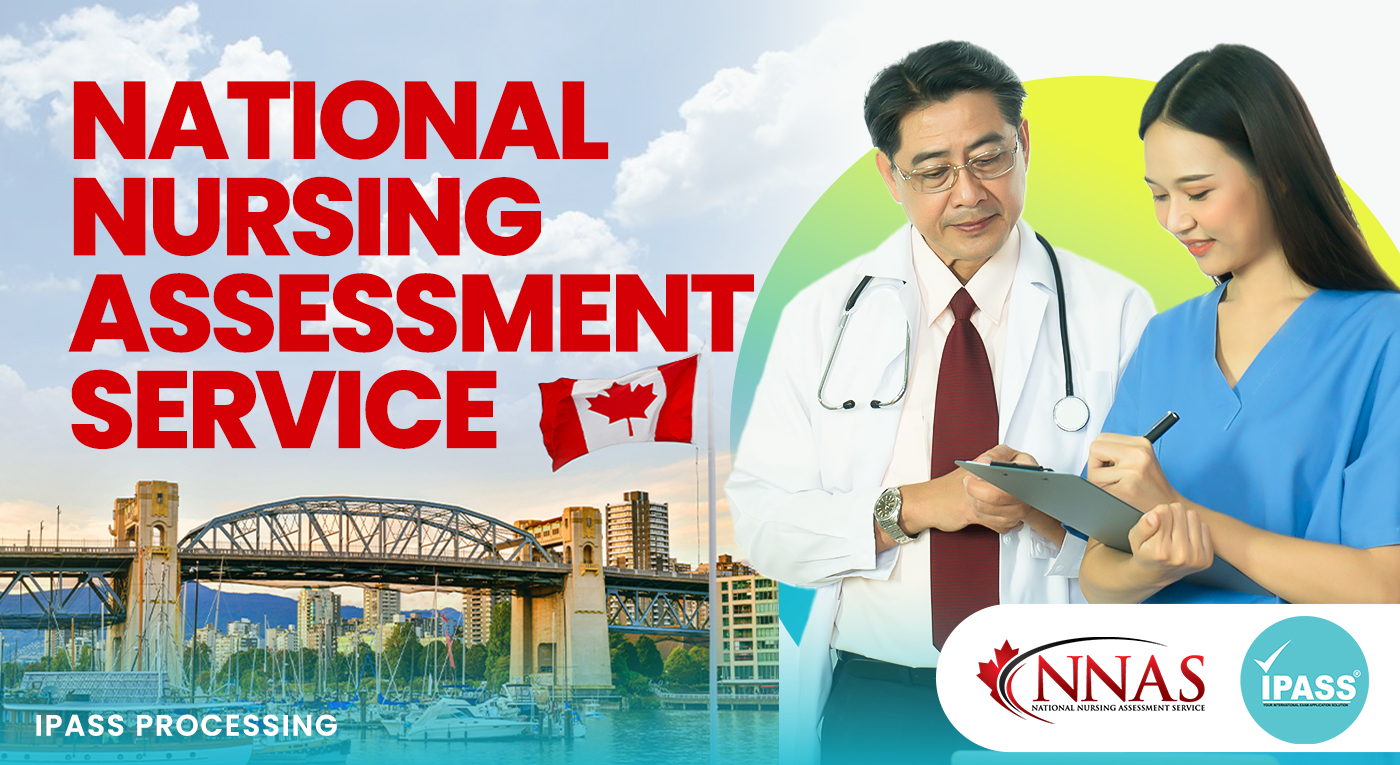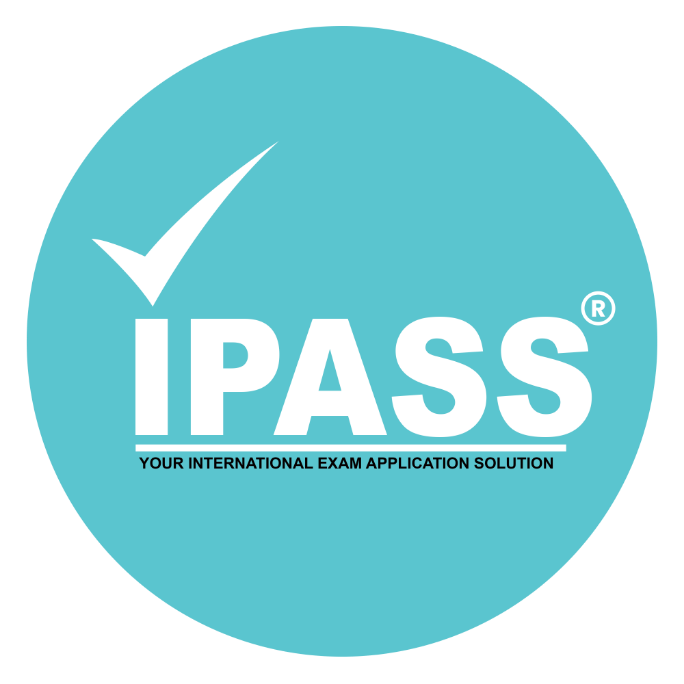Your cart is currently empty!

What is NNAS? The Ultimate Guide
(Estimated Reading Time: 9 minutes)
Canada remains a top choice for nurses exploring global healthcare careers. Its strong economy and well-regarded healthcare system make it a clear choice for internationally educated nurses. However, becoming a licensed nurse in Canada requires a thorough credential assessment through the National Nursing Assessment Service (NNAS) first. This process carefully evaluates the applicant’s credentials and competencies to ensure they align with Canadian nursing standards.
This assessment includes a comprehensive review of the applicant’s nursing education and clinical experience to determine their eligibility for licensure. In this article, we will provide an overview of the NNAS credential evaluation application process. Furthermore, we will also go over the steps involved in applying for nursing licensure in Canada as an internationally educated nurse.
Understanding the National Nursing Assessment Service
The NNAS plays a pivotal role as the centralized authority tasked with evaluating the nursing credentials of internationally educated nurses (IENs). Its assessment process ensures that IENs meet Canada’s rigorous standards for safe nursing practice.
Moreover, obtaining your advisory report from NNAS is the initial step in applying for the NCLEX-RN for Canada. Based on this report, you can apply for eligibility with your chosen Board of Nursing. Therefore, NNAS is instrumental in facilitating the path to your nursing application in Canada.
The Role of NNAS to Internationally Educated Nurses
The NNAS assessment provides a standardized process for IENs to demonstrate their qualifications and readiness to practice nursing in Canada. Moreover, the evaluation ensures that IENs have the essential clinical knowledge, skills, and language proficiency. This is necessary for delivering safe, high-quality care within the Canadian healthcare system.
The NNAS Credential Evaluation Process
To proceed with your NNAS application, you must submit a specific set of documents. Some documents must be provided by you, while others must be sent directly from third parties.
Part of the “third parties” include your nursing school, employer, and licensing authority (PRC for the Philippines). Thus, carefully reviewing the instructions for each requirement before submission is crucial.
Here is the list of documents/requirements NNAS may require from you.
1. Educational Requirements
• Official Transcripts
The NNAS must directly receive your official transcripts from your nursing school. Moreover, they should include all courses taken, grades received, and the dates of your enrollment and graduation.
• Course Descriptions
Provide detailed information about the content, duration, and learning outcomes of each nursing course you completed. In addition, this helps Canadian authorities understand the depth and breadth of your education.
• Proof of Graduation
This should be an official document from your institution confirming your degree or diploma in nursing.
2. Professional Experience Documents
• Employment Verification
Your employers must complete the forms proving you have been employed as a nurse there over the last five calendar years. Moreover, these forms should include your job title, employment dates, whether full-time or part-time and a brief description of your duties.
• Job Descriptions
Your responsibilities should clearly outline the specific duties you undertook. Include the types of patients you cared for and any specialized skills or procedures you used.
• Registration Proof
Provide documentation of your nursing registration or license in your home country, including its validity period and any restrictions or disciplinary actions.
3. Language Proficiency Requirements
• According to NNAS’ website, Effective October 14, 2022, NNAS will no longer collect language test scores. Instead, applicants must directly submit proof of language skills to regulatory bodies during their review process. This change aims to simplify NNAS’s processes. Moreover, scores must meet the minimum requirements set by the nursing regulatory body in your intended province of work.
4. Identity Documents
• Passport
A clear copy of your current, valid passport
• Birth Certificate
An official copy, potentially with a certified translation if not in English or French
• Legal Name Change Affidavit/Documents
This document is necessary if your name on any document differs from your current legal name. Additionally, this may also include a marriage certificate or divorce decree.
5. Additional Considerations
• Credential Evaluation
Some provinces may require an additional evaluation of your nursing education by organizations like World Education Services (WES).
• Criminal Record Check
This should be from your country of origin and any country you’ve lived in for 6+ months in the last five (5) years.
• Translation
If your documents are not in English or French, you must have them professionally translated. Moreover, the applicant is responsible for this cost.
The NNAS application process can be complex and time-consuming. It’s often recommended that you gather these documents before your planned move to Canada. Furthermore, each province may have varying requirements, so it’s advisable to consult the nursing regulatory body in your intended province.
Preparing for the NNAS Application
Successfully navigating the NNAS process can be challenging for internationally educated nurses. However, with thorough preparation and attention to detail, you can effectively demonstrate your qualifications and move closer to obtaining licensure in Canada. Here are some tips that we can give so that you can navigate the NNAS application smoothly.
Tips for a Smooth Application Process
1. Start early since the NNAS process can take several months. So, begin well in advance of your planned move to Canada.
2. Create a checklist of required documents to ensure nothing is overlooked.
3. Keep copies of all submitted documents for your records.
4. Follow the NNAS guidelines meticulously when submitting documents.
5. Ensure all information provided is accurate and consistent across all documents.
6. Be prepared to pay the required NNAS application fees and document processing fees.
7. Regularly check your email for updates or requests for additional information from NNAS.
8. Consider using NNAS’s online application system for faster processing.
9. Be patient and allow sufficient time for document verification and assessment.
10. If you have questions or concerns, seek assistance from NNAS customer support.
11. If you are busy and need help figuring out where to start, you may also seek assistance from application experts like IPASS Processing.
12. Stay informed about any changes in NNAS applications, policies, or procedures.
13. Join online forums or support groups for internationally educated nurses to share experiences and advice.
Thoroughly preparing required documents is crucial for a successful application process. Furthermore, adhering closely to NNAS guidelines facilitates smooth licensure for internationally educated nurses in Canada.
NNAS Application Timeline and Fees
The timeframe of application will differ from one person to the other. Here are the estimated timeline for each process:
1. Create an Account and Submit Application
Create an account on the NNAS website, then complete the application form. Then, the required documents, such as educational transcripts and nursing registration or licensure verification, must be submitted.
Duration: This step can take a few days to a few weeks, depending on how quickly you can gather and submit all necessary documents.
2. Document Assessment and Verification
NNAS reviews and verifies the submitted documents. This involves contacting the issuing institutions to confirm the authenticity of the documents.
Duration: This step typically takes several weeks to a few months, depending on how promptly the institutions respond to NNAS requests for verification.
3. NNAS Advisory Report:
Once all documents are verified, NNAS prepares an Advisory Report that assesses your nursing education and credentials against Canadian standards.
Duration: This usually takes about 12 weeks after all documents have been received and verified. Additionally, NNAS offers an expedited service.
4. Application to Regulatory Body:
Once you have the Advisory Report, apply to the nursing regulatory body in your desired Canadian province or territory for practice. Each regulatory body has its additional requirements and processes.
Duration: The timeline for this step varies widely based on the specific requirements of the provincial or territorial regulatory body.
NNAS Application Fees
1. NNAS Main Application Fee
• Cost: $650
• This fee covers the initial application and document evaluation.
2. Additional Fees
• Additional fees may apply if you need to have more documents evaluated or if you are applying for multiple nursing designations. Hence, check the NNAS website for specific details.
3. Translation Fees
• If your documents are not in English or French, you must pay for translation services. The cost varies based on the number and type of documents needing translation. However, on average, the price for each page is $85.
4. Courier Fees
• Additional fees may apply for courier services to send documents to NNAS or receive documents from them.
5. License Verification Fee
• Verification of license is required during the NNAS Process and PRC will accomplish this. To complete the process, you must submit the required documents and settle some fees.
6. School Requisition Fees
• NNAS will request the school documents directly from the school and additional fee may incur for requisition.
7. Education Credential Assessment Through Affiliated Through Third Party
• NNAS may advise you to provide an ECA report from one of their affiliated education credential service agencies, e.g., WES, CES, or IQAS, to complete the process. The fee may vary depending on which agency you process the education evaluation.
How Can IPASS Help You with your NNAS Application
IPASS continues to be one of the Philippines’ leading international healthcare licensing experts. With its proven track record, IPASS can help you process your NNAS application and streamline the process. Here are the benefits of working with IPASS:
a. Streamlined Process
IPASS can provide comprehensive assistance throughout the NNAS application process, guiding internationally educated nurses step-by-step to ensure a smooth and successful application.
b. Seasoned Processing Experts
Our team consists of experienced professionals who are well-versed in the intricacies of the NNAS application. We stay up-to-date with the latest requirements and changes, ensuring your application meets all current standards.
c. Hassle-Free Application
IPASS handles your NNAS application, allowing you to focus on preparing for your nursing career in Canada. This way, you can avoid the burden of paperwork and administrative tasks. Thus, it can save you time and reduce the stress associated with the application process.
d. Document Verification Assistance
IPASS can help you gather, organize, and verify all necessary documents for your NNAS application. This includes academic records, work experience certificates, and English language proficiency test results.
e. Personalized Guidance
Every nurse’s situation is unique. IPASS offers personalized advice tailored to your specific circumstances, helping you navigate any challenges that may arise during the application process.
f. Timely Submissions
Our expertise ensures your application is submitted on time and in the correct format. This minimizes the risk of delays or rejections due to administrative errors.
g. Ongoing Support
IPASS doesn’t just assist with the initial application. We provide ongoing support throughout the process, including help with any additional information requests from NNAS.
Partnering with IPASS for your NNAS application means aligning with a seasoned leader in international healthcare licensing. Hence, count on IPASS to ensure your NNAS application is successful and streamlined for efficiency.
Canada’s Nursing Workforce Needs You
As Canada’s healthcare system grows and evolves, the demand for skilled and compassionate nurses remains high. The country’s aging population and expanding healthcare services create numerous opportunities for internationally educated nurses to contribute their expertise and make a meaningful impact.
By pursuing your nursing career in Canada through the NNAS process, you advance your international healthcare goals and address a critical need in the Canadian healthcare system. Your unique perspectives, diverse experiences, and dedication to patient care can significantly enrich the nursing profession in Canada.
While the NNAS application process may seem challenging, it’s an essential step toward ensuring high-quality healthcare delivery nationwide. With proper preparation, guidance from experts like IPASS, and determination, you can successfully navigate this process and begin your rewarding nursing career in Canada.
Remember, your skills and dedication are valued, and Canada’s healthcare system eagerly awaits your contribution. Moreover, Canada offers unparalleled opportunities for nurses to grow, learn, and excel. Therefore, take the first step towards a brighter future and make a global difference in people’s lives.
Recommended Reads
- NCLEX Pass Rates 2024: Key Insights You Need to Know
- May 2025 PNLE Results: Top Schools & Topnotchers
- Ace the May 2025 PNLE: Final Week Preparation Tips
- Nursing Job Opportunities in the Philippines for USRNs
- AHPRA Registration 2025: Updated Pathways for IQRNs
Recommended Topics
- ASCPi (1)
- Australia (8)
- Canada (5)
- Exam Tips (28)
- General (120)
- IPASS Events (10)
- IPASS News (129)
- Middle East Nursing (17)
- NCLEX (64)
- New Zealand (3)
- NMBI Ireland (1)
- Online Review (13)
- PNLE Online Review (3)
- Tourist Visa (1)
- UKNMC (1)
- US Nursing (12)
- UWorld (1)
- VisaScreen (3)








Leave a Reply